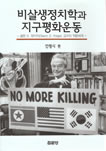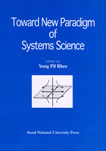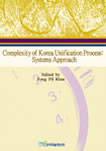
(Pisalsaeng chongch’ihak gwa chigu p’yonghwa undong. Glenn D. Paige kyosu ui hakmun segye)
(Nonkilling Political Science and the Global Peace Movement. Glenn D. Paige and his Scholarship)
한배호…[등저] ; 안청시 편
Summary: A scholarly tribute to Glenn D. Paige’s academic work. Includes “From the Korean War to Nonkilling Global Political Science: Korea and Glenn D. Paige’s Scholarship” by Chung-Si Ahn and Bong-Scuk Sohn; “Glenn D. Paige and Study of the Korean War” by Dae-hwa Chung; “Glenn D. Paige’s ‘Rediscovery of Politics’ and Political Leadership Studies: From Violence to Nonviolence” by Yoon-jae Chung; “Nonviolent Politics of Glenn D. Paige” by Jae-Bong Lee; “On Political Science Knowledge and Nonkilling as Value: A Nonviolence Critique of Glenn D. Paige’s Nonkilling Global Political Science” by Chaiwat Satha-Anand; “Glenn D. Paige and Japan in Search of Nonviolent Tradition” by Hidekazu Sakai; “Nonviolent Unification of Korea through Neutralization” by Jong-il Kang; “The Necessary Conditions for Peace on the Korean Peninsula: The Creation of a Peace Culture” by Soo Min Kim and “Nonkilling Korea: Building a Peace Structure on the Korean Peninsula” by Glenn D. Paige.
Order your copy online from Daum.net



